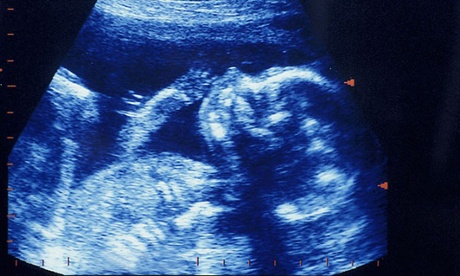Brodie Donegan, the woman behind the bill which aims to give personhood to a foetus, pushes to reintroduce another version

Zoe’s law, a bill which critics argued gave personhood to a foetus and therefore put abortion in New South Wales at risk, has been all but defeated, with the woman behind it vowing to work with politicians and women’s groups to introduce another version next year.
The idea of Zoe’s law was that it would make it a crime to kill a foetus, in particular circumstances, without the consent of the mother.
Brodie Donegan has been lobbying for it since her daughter was stillborn as the result of a drugged driver hitting her on Christmas Day 2009, when she was 32 weeks pregnant.
The loss of Zoe was listed among Donegan’s injuries as part of a grievous bodily harm charge, but Donegan wanted it to be listed as a separate crime and set out to change the law to that effect.
The bill passed the lower house of the NSW parliament in November last year but has languished in the upper house ever since, with most of the members of the legislative council indicating they would reject it.
If the bill is not introduced by the end of the parliament’s last sitting week of the year, next week, then it will lapse without being voted on.
Donegan has resigned herself to the fact that the bill is unlikely to pass in the current form and said she would work to find MPs to work with her on a new version.
“I think this bill has been tainted by conspiracy theories,” she told Guardian Australia.
“I think people forget it happened to me and my partner and we’re just trying to do something to get something that would make an offender committing a crime which caused the loss of a baby against the mother’s consent a crime, that’s what we want, them to be charged with also causing the death of a baby.”
Zoe’s law has been criticised by the NSW Bar Association and the Australian Medical Association (AMA) for potentially conflicting with abortion laws by giving personhood to a foetus which has reached 20 weeks old or the weight of 400g.
Both organisations said the law could have unintended consequences such as making abortion, particularly late-term abortion, illegal.
Donegan said she felt women’s lobby groups as well as far-left parties and groups had ignored her role in the bill and were instead focussing on the role of two conservative men in it, Fred Nile and Christopher Spence.
Fred Nile, leader of the Christian Democratic party, initially introduced a bill, also called Zoe’s law after Donegan’s baby, without Donegan’s consent, which would have made abortion illegal.
Donegan, who is pro-choice, worked on a second version of the bill with her local member Christopher Spence, who has since moved from the Liberal party to the crossbenches while he is investigated by Icac and will resign from parliament at next year’s election.
“We don’t want anything to do with abortion or anything to do with conspiracy theories and I get really cranky about articles from a lot of the feminist collective and Greens and a lot of the protesting and they’re completely missing the point of what we’re trying to do,” said Donegan.
“If they wanted equality then they would say ‘look we don’t agree with this version but we will work on something that’s good’.”
Zoe’s law was put under the spotlight again last month when the drugged driver who hit Jacqueline Sparks’ car, causing the loss of her unborn baby, Mia, was given a six-year sentence.
Donegan has been in touch with Sparks and said the two would work together to create a bill which made the killing of a foetus without the mother’s consent a criminal act.
“I find it really frustrating, as much as I think the current version won’t pass the upper house I’m glad we are having this conversation,” she said,
“[Women’s advocacy groups] need to acknowledge current laws are not adequate and that they are willing to work with Jacqui [Sparks] on something that’s going to make the bar association and the AMA happy. That’s what I want.”
On Thursday morning about 50 people gathered outside the NSW parliament to protest Zoe’s law, worried that it was about to be introduced.
Melanie Fernandez, chair of the Women’s Electoral Lobby, said it had taken months of intensive campaigning to make people aware of the potential impacts of the bill, and she praised the members of the upper house for engaging with the community.
“For women, our ability to access abortion, and how that might be affected was particularly concerning,” she said.
Last week 3,000 pages of letters from people concerned about the bill were tabled to the NSW parliament and Fernandez said the parliament had heard the concerns of the medical and legal communities as well.
“It’s important to recognise the personal circumstances from which this bill has risen but we could not risk the potential impacts on a woman’s right to an abortion,” she said.
